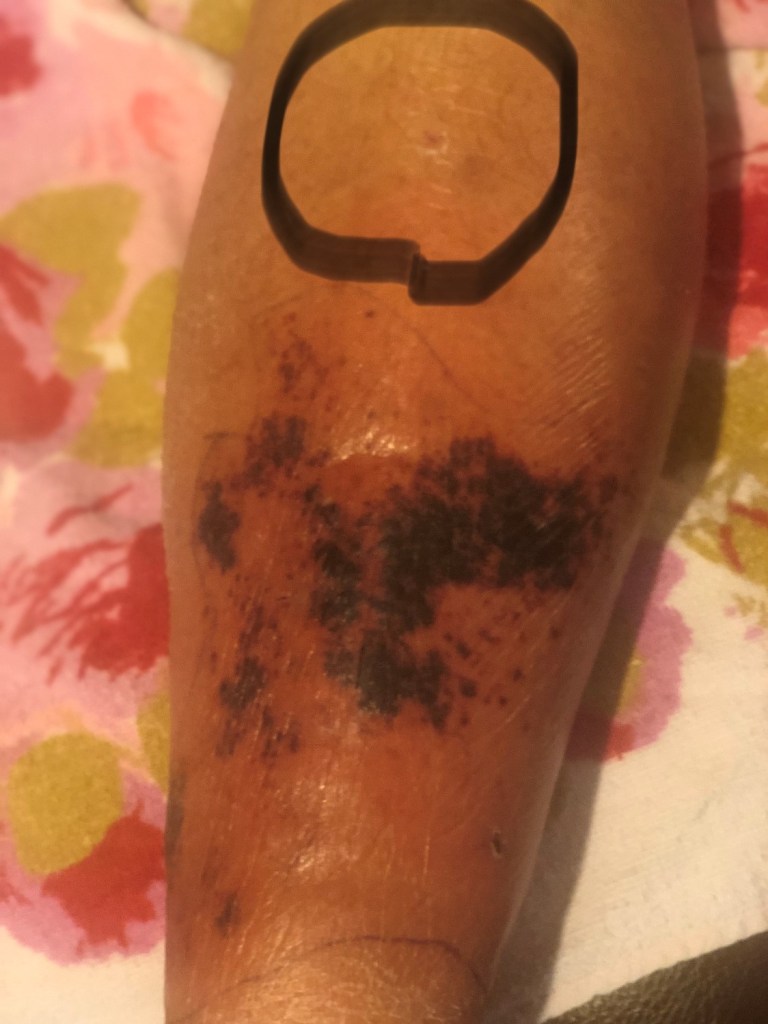DOTHAN, Ala. (WDHN) — For the Meredith family, a trip to Panama City Beach was an annual tradition for some fun in the sun.
But this time, things almost turned deadly for father Tony Meredith.
“I almost lost my leg or my life,” he said.
It started off with flu-like symptoms around five days after he got back, but as Meredith got worse, he began getting medical help.
At first, a nurse practitioner thought it was a kidney infection, but it wasn’t until he discovered his leg was turning purple that the Colquitt resident decided to go to Southeast Health.
At first, a nurse practitioner thought it was a kidney infection, but it wasn’t until he discovered his leg was turning purple that the Colquitt resident decided to go to Southeast Health.
At first, a nurse practitioner thought it was a kidney infection, but it wasn’t until he discovered his leg was turning purple that the Colquitt resident decided to go to Southeast Health.

Meredith was put on triage, and eventually, doctors took a bacterial culture to see what was going on.
“Dr. Hewitt, I think it was, had told me it was a type of strep, but then on Tuesday, when he’d come and seen me, he told me it was the flesh-eating kind,” he said.
Meredith had necrotizing fasciitis, which had seeped into a barely noticeable scratch below his knee while he was in the water.

“The skin is the body’s most important barrier to infection,” Dr. Andrew Sawyer said. “Any violation of that skin, even something as small as a scratch has the potential to increase the potential for waterborne infection.”
Meredith said that any beachgoer should be aware of the risks of playing in the ocean water.
“Anybody that’s going to the beach, they need to really, really be real cautious before getting in the sand or the water,” he said. “I never thought it would happen to me.”
An examination of reported cases of flesh-eating bacteria in 2019 shows that Meredith is the first confirmed case this year to have originated in Panama City so far.
Despite the ordeal, he said all he has now is a throbbing foot and a four-week recovery period.
The Bay County Health Department has released this statement in response: “Bay County has no confirmed cases of vibrio vulnificus. Necrotizing fasciitis, sometimes called “flesh-eating bacteria”, and severe infections with vibrio vulnificus are rare.
If you are healthy with a strong immune system, your chances of developing complications due to this condition are extremely low.”
For more information visit www.bay.floridahealth.gov.









